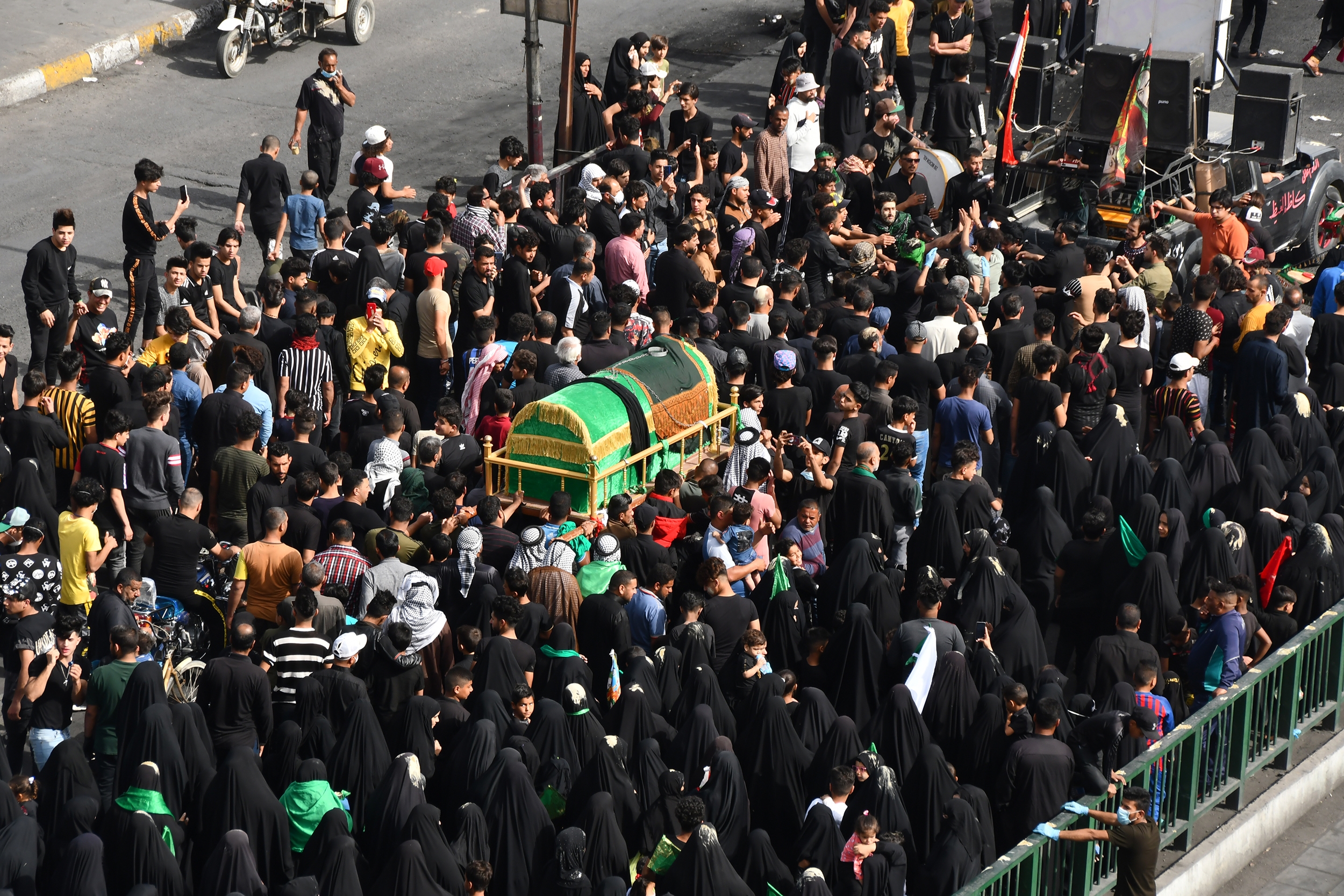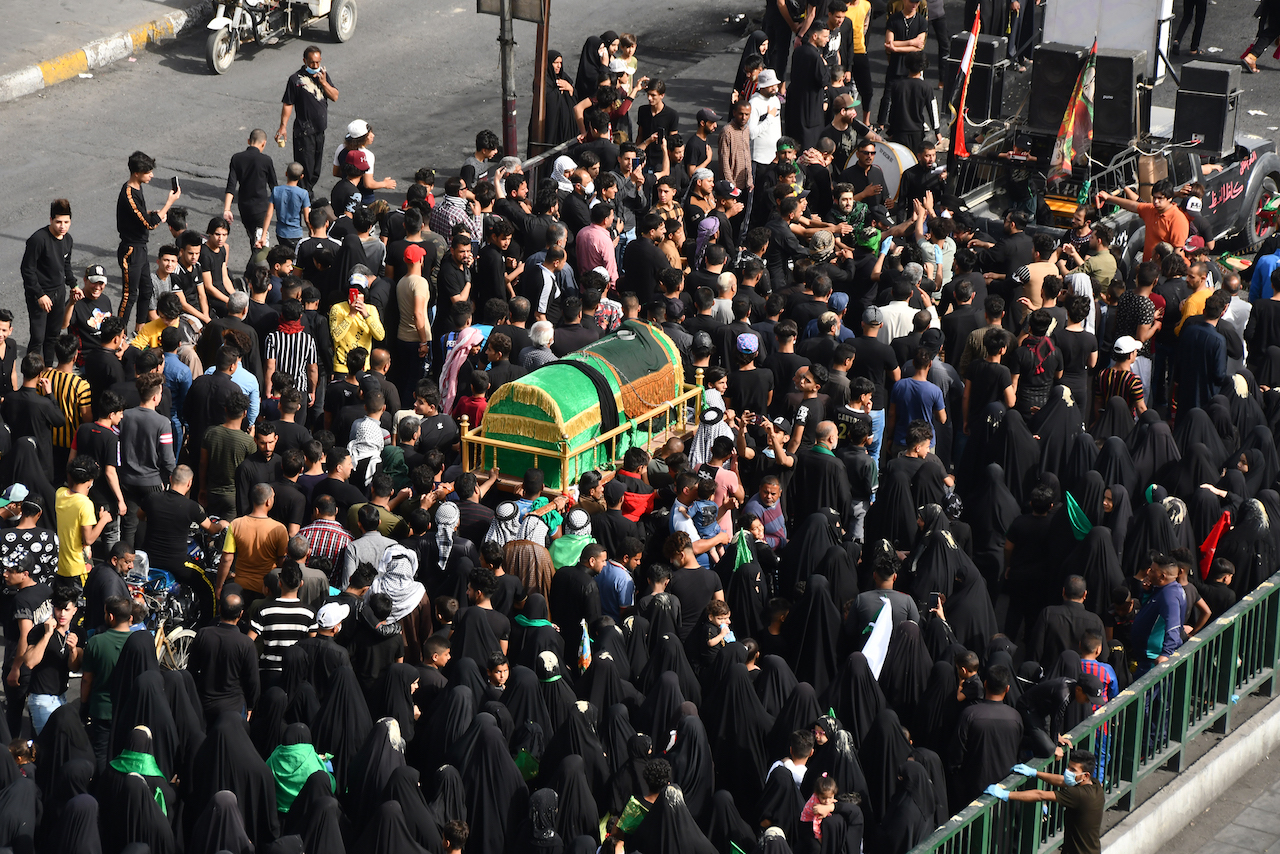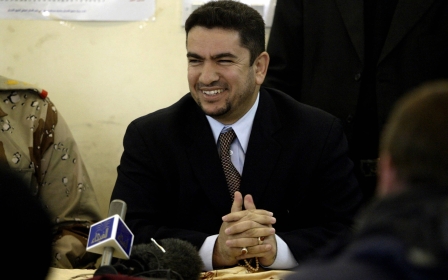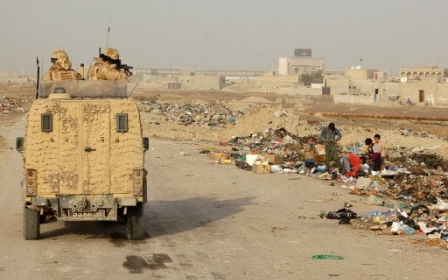Coronavirus: Iraq barricades Sadr City as hundreds of thousands defy curfew

Iraqi authorities have closed the entrances to the Sadr City neighbourhood in Baghdad, as the government moves to prevent residents from disobeying a curfew designed to tackle the coronavirus pandemic.
According to Iraqi website Shafaq News, security services placed concrete blocks at the entrances to the working-class neighbourhood to prevent vehicles from leaving the area.
"Under the direction of the commander of Baghdad operations, the security forces closed the entrances and exits of Sadr City," a security source told Shafaq News.
He said the decision came as a result of the "lack of commitment" of the area's residents to observing a week-long curfew imposed to prevent the spread of coronavirus.
The Iraqi health ministry has documented 208 Covid-19 cases and 17 deaths, but many expect the real number to be much higher, as only some 2,000 people have been tested in a country of 40 million inhabitants.
New MEE newsletter: Jerusalem Dispatch
Sign up to get the latest insights and analysis on Israel-Palestine, alongside Turkey Unpacked and other MEE newsletters
A fully fledged outbreak would be devastating for the country, where years of conflict and under investment have ravaged the healthcare system.
Pilgrims ignore curfew
The move comes after tens of thousands of Iraqi Shia Muslims defied the curfew to commemorate a revered imam on Saturday.
On foot, they streamed to the golden-domed mausoleum of Imam al-Kadhim in Baghdad, where authorities kept an outer gate open to allow pilgrims into the surrounding courtyard.
The inner shrine remained closed despite some pilgrims pressing authorities to let them in, a shrine official told AFP.
"There are many fewer pilgrims than in previous years," the official said, asking not to be identified.
"For the first time, there are no foreign pilgrims - everyone comes from Iraqi provinces."
The anniversary typically draws millions of devout followers from around the world who visit and kiss the shrine housing the remains of Moussa al-Kadhim, who died in 799 in the custody of Abbasid caliph Harun al-Rashid.
Many usually come from Iran, which is now battling one of the world's deadliest coronavirus outbreaks.
Iraq banned travel to and from Iran last month in fear of a potential spillover.
Last week, it expanded the measures into a total flight ban until 24 March and shut shrines across the country.
The country's top Shia cleric, Grand Ayatollah Ali Sistani, has urged Iraqis not to gather in large numbers for prayers, where the risk of contamination could be high.
On Friday, his representative issued another rare statement urging Muslims to abide by medical advice on social distancing, but did not specifically tell pilgrims to stay home.
Authorities have struggled to enforce lockdowns announced in more than half of Iraq's 18 provinces, as well as a ban on travel between provinces.
In the southern city of Nasiriyah, thousands of pilgrims packed onto a bridge with a mock coffin to honour the fallen imam as they could not make it to Baghdad.
Influential cleric Muqtada Sadr called on his followers to take part in the pilgrimage to the Imam al-Kadhim mosque despite federal authorities urging otherwise.
Middle East Eye delivers independent and unrivalled coverage and analysis of the Middle East, North Africa and beyond. To learn more about republishing this content and the associated fees, please fill out this form. More about MEE can be found here.





